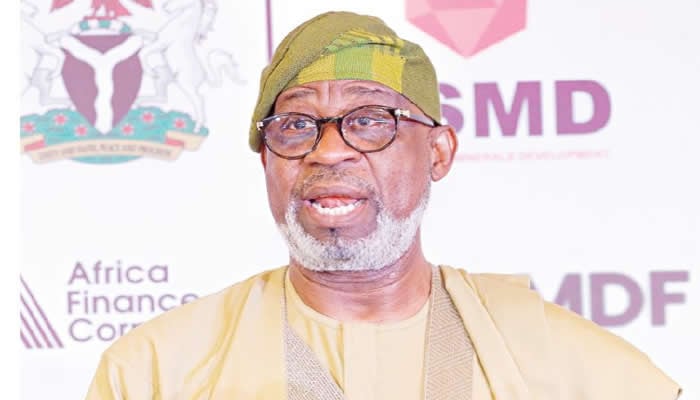
Tianjin, China — Nigeria’s Minister of Solid Minerals Development, Dr. Dele Alake, has called on international investors to increase their stakes in the country’s fast-evolving solid minerals sector, touting reforms that have transformed Nigeria into one of the world’s most attractive mining destinations.
Speaking on the theme “Connect and Collaborate, Co-Build and Co-Share” at the 2025 China Mining Conference in Tianjin, Alake said the Federal Government’s ongoing reforms have strengthened transparency, improved security around mining sites, and enhanced investor confidence.
According to a statement released on Sunday by his media aide, Segun Tomori, the minister highlighted major policy innovations including the deployment of Mining Marshals, a satellite-based monitoring system, and an upgraded Electronic Mining Cadastre all designed to tackle illegal mining and streamline operations.
“We have invested in technology to make business operations simpler, safer, and more transparent for investors. From the Nigerian Mineral Resources Decision System to the new Centre of Excellence, our goal is to ensure investors can manage operations remotely and efficiently,” Alake stated.
He said the reforms form part of President Bola Tinubu’s economic diversification agenda, aimed at unlocking Nigeria’s vast mineral wealth, attracting foreign capital, and creating jobs across the mining value chain.
Alake noted that Nigeria hosts more than 44 commercially viable mineral deposits, including gold, lithium, nickel, and barite, and invited Chinese and global investors to participate in exploration, processing, and value addition.
$1.3bn in Lithium Investments from China
The minister revealed that Chinese companies have invested over $1.3 billion in lithium processing in Nigeria since September 2023, following President Tinubu’s state visit to Beijing in 2024.
“Companies such as Canmax Technology, Jiuling Lithium, Avatar New Energy Nigeria, and Asba have made substantial commitments that are already transforming the mining landscape,” he said.
“These investments are diversifying Nigeria’s economy, attracting infrastructure, technology transfer, and expertise, while also developing local skills among Nigerian engineers and workers.”
Alake, who also chairs the Africa Minerals Strategy Group, emphasized the need for greater continental collaboration on exploration data and reporting standards to ensure Africa benefits equitably from its mineral resources.
He added that Nigeria is working to strengthen regional Centres of Excellence in Geosciences and Mining Skills, while expanding the Solid Minerals Development Fund (SMDF) and the SMDF-AFC Facility to support early-stage exploration and de-risk investments.
“Nigeria’s vision is not only to extract minerals but to build a globally competitive value chain that supports clean energy transition, job creation, and industrial growth all within the framework of responsible mining,” he affirmed.
Nigeria Showcases Data Strengths
Representing Nigeria in the technical session on “Mining in Africa and Policy,” the Director-General of the Nigeria Geological Survey Agency (NGSA), Prof. Olusegun Ige, showcased the country’s extensive aeromagnetic and geochemical datasets and the National Mineral Resources Data System, which he said provide a robust foundation for modern exploration.
He noted that while these datasets have improved Nigeria’s geological understanding, additional investment is needed to convert data into proven reserves.
Other speakers at the conference included Xu Xueyi, Deputy Director-General of the China Geological Survey; Mohamed Ahmed Taha, Sudan’s Minister of Minerals; Phumzile Mgcina, South Africa’s Deputy Minister of Mineral and Petroleum Resources; and Joseph Lebbie, Director-General of Geological Exploration, Sierra Leone.

